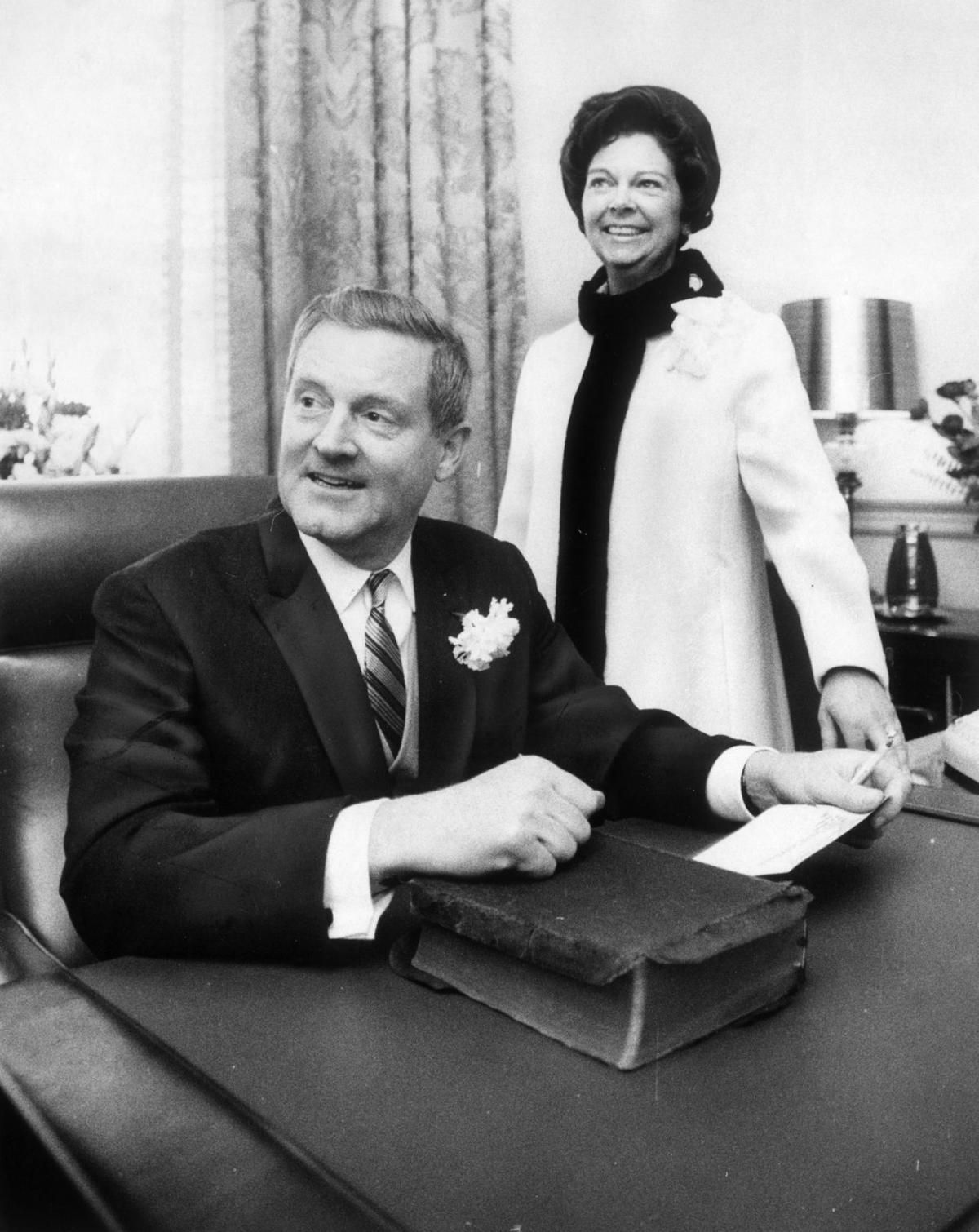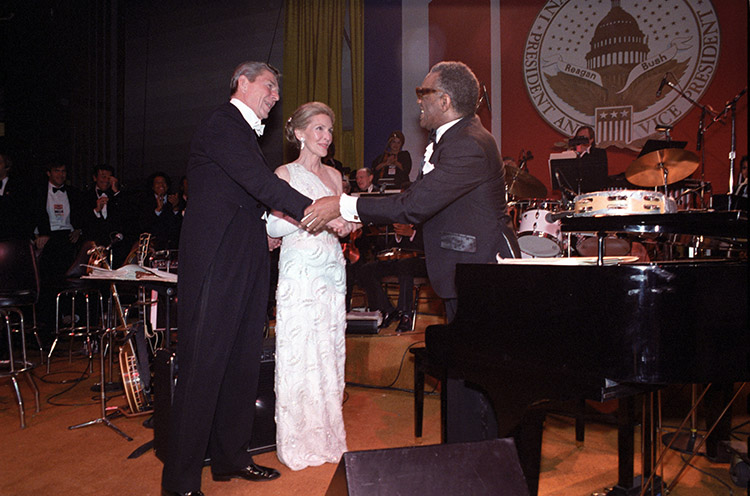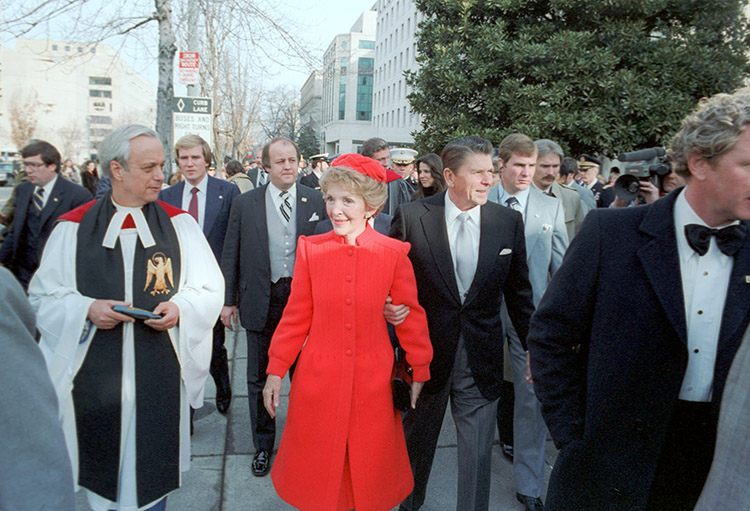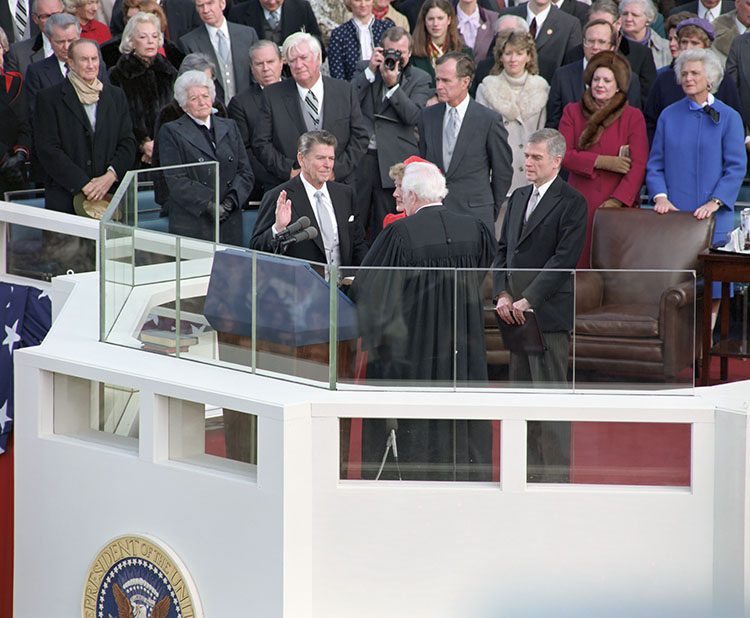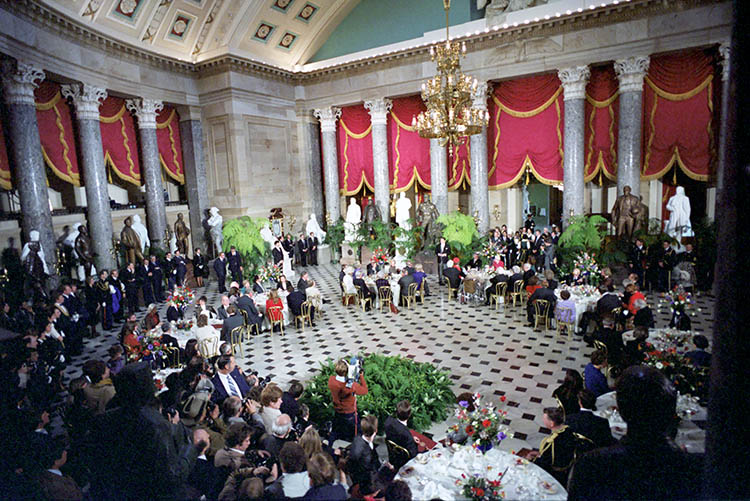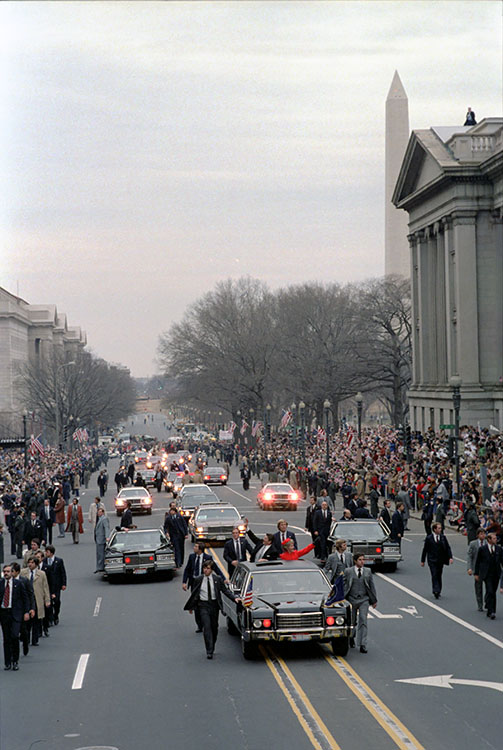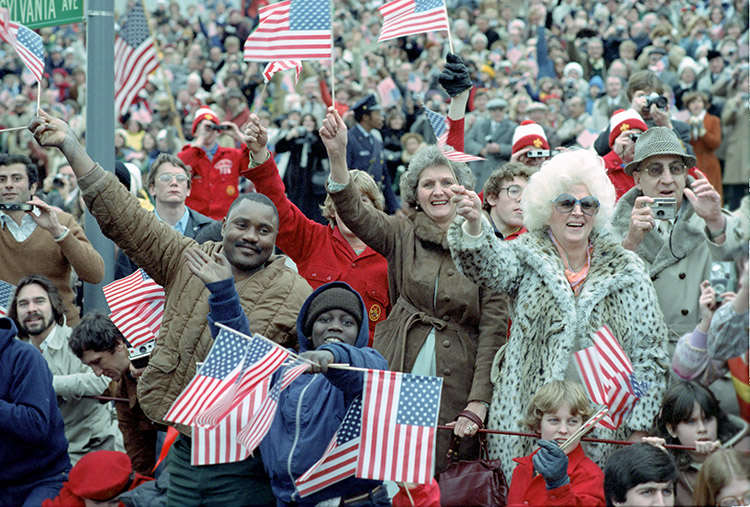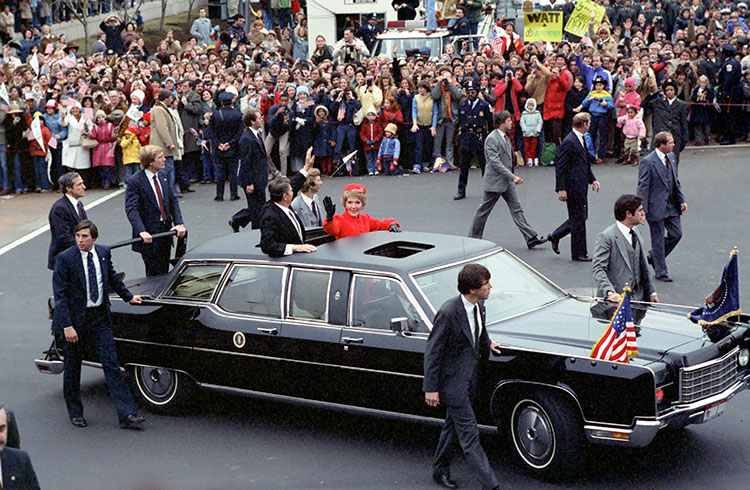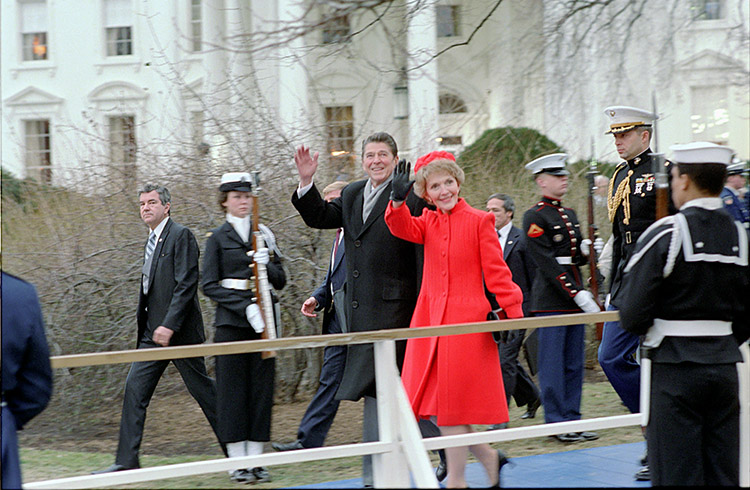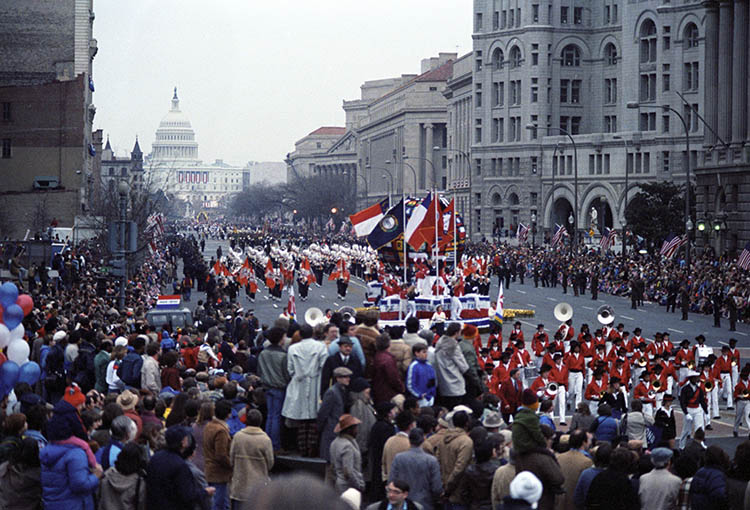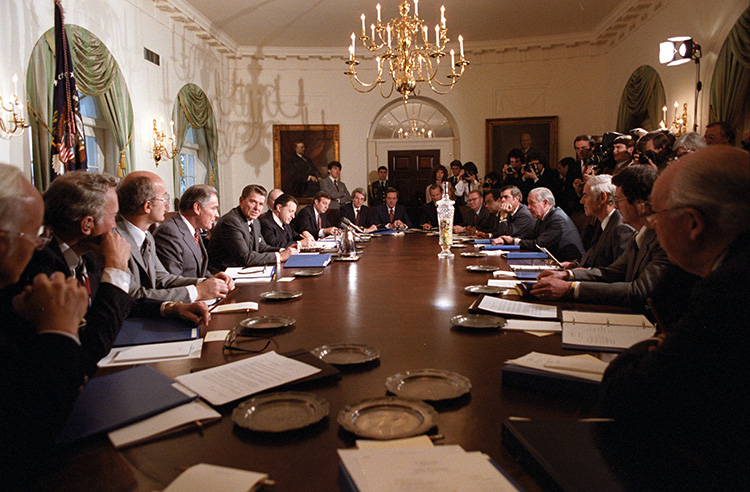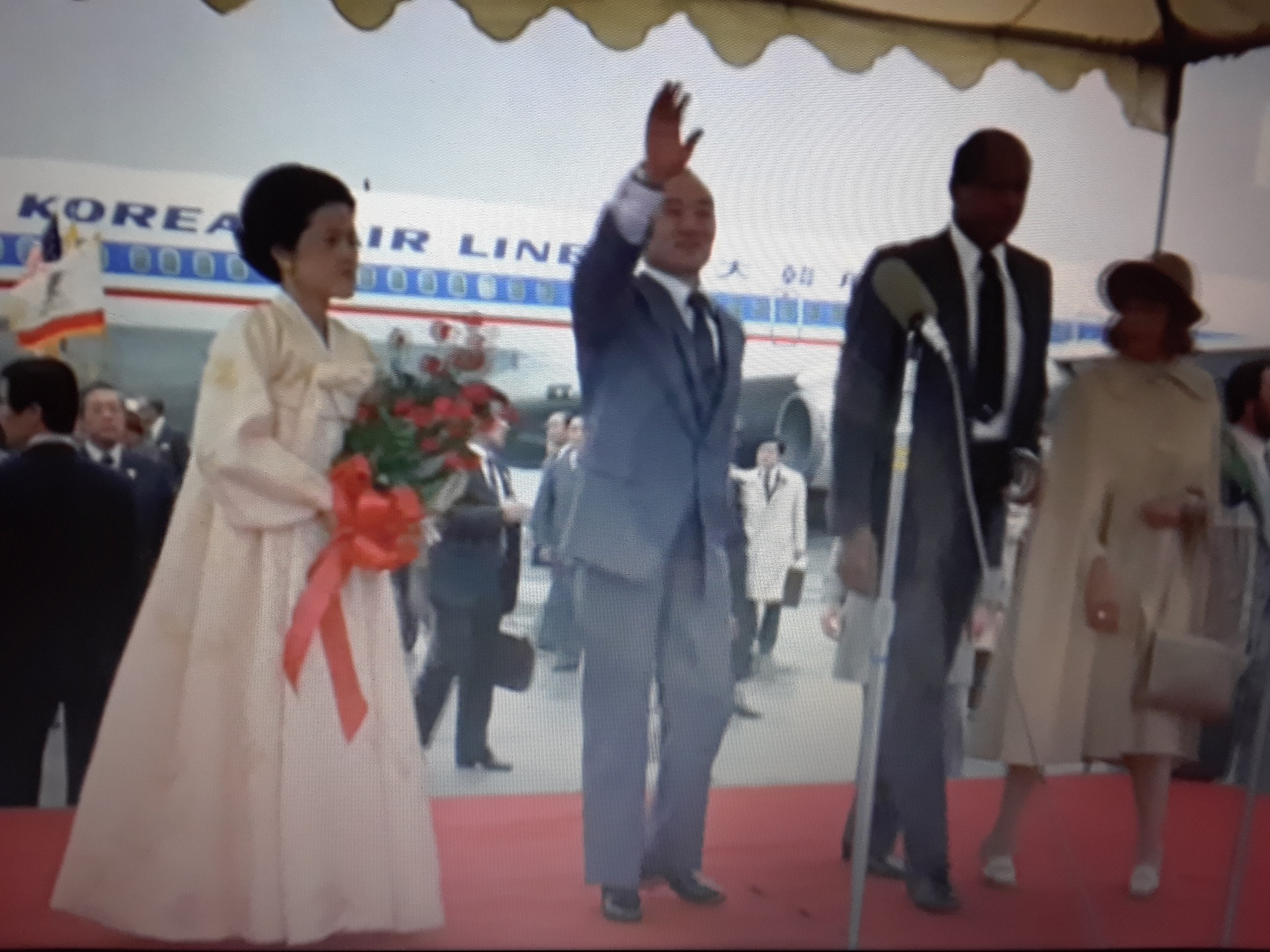Chapter 10: Gipper putting his administration together
Sergeant Foley
Well-known member
Putting it Together
7:49 AM EST, Monday, December 1, 1980
7:49 AM EST, Monday, December 1, 1980
The transition team of President-elect Ronald Reagan was considered one of the largest operations ever in the history of presidential transitions: consisting between 1,000 or 1,500+ people involved both volunteering and paid staff members.
Serving as director of the Reagan transition team was Edwin Meese (who'll be detailed sometime around Chapter 13).
Overseeing the outgoing Holton administration's role in the presidential transition was White House Chief of Staff Ann C. Whitman, who's served under then-President Rockefeller and current President Holton in her current position.
Among the appointments for the Reagan presidential transition team: Richard V. Allen was appointed to serve as senior adviser for foreign policy and defense matters; Martin Anderson for domestic and economic matters; Caspar Weinberger (who was tapped to serve as US Deputy Secretary of Defense), was appointed as senior adviser on budget matters.
Among those joining the transition team: James Baker (at the insistence of Vice President-elect George HW Bush) was tapped to serve as deputy director and was also put in charge for overseeing the planning of the structure and management of the incoming Reagan administration's White House staff. Despite Nancy's hell-bent push in attempting to block Baker from having a role, Reagan announced he would be naming Baker as White House Chief of Staff, which secretly annoyed many Reaganites especially Deaver, Nofziger and others, who felt Baker is loyal only to the Bushes.
Others who joined included the following:
*Michael Deaver: Liaison to the Reagan family.
*Drew Lewis: Liaison to the Republican National Committee; women's groups; business community; State and local governments including working on developing providing policy briefings to Cabinet Secretary designates.
*Lyn Nofziger: In charge of Public Relations with members of the White House Press Corps.
*Verne Orr: Administrative and budgetary matters.
*William Timmons: Overseeing the transition team's assessment of existing programs and policies.

